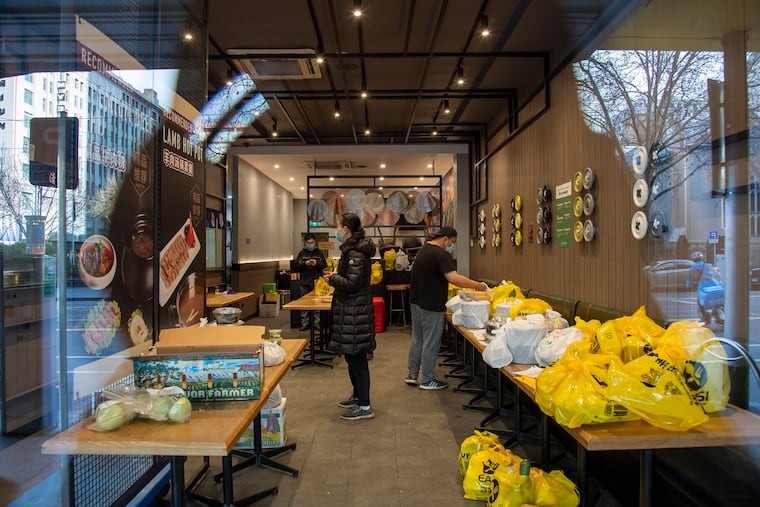Want to open a restaurant during a pandemic? Focus on safety, stockpile cash and get ready to innovate.
Safety has to be your main priority. New sources of revenue will need to be created and the successful startups in the restaurant business have had to re-think the products they ffer.

Planning on starting up a restaurant? It’s a difficult proposition, even during the best of times. So deciding to launch during a global pandemic when your city has been locked down, and restaurants have been limited to providing only takeout or delivery services, might seem to be a bad idea to many. But that hasn’t stopped some from taking the plunge.
Take for example, Mi ‘N Tea. The owner of the Vietnamese restaurant, which launched this spring in Manayunk, admits to struggling with supply-chain and staffing issues, but the business is moving forward. “Things are going OK,” said Kim Dieu, who is also the restaurant’s marketing director. “Everyone has been really encouraging, and this gives us the hope to continue each day. ”
Dieu is not alone. A few other intrepid entrepreneurs have pressed forward even during these difficult times. Sure, they’ve also had challenges. But for the most part, they’re succeeding. How? By following a few common-sense rules. And through hard work, a little savvy, and a lot of positive attitude.
“We are going to celebrate two months and the lines are getting longer,” said Héctor Serrano, the co-owner of Northern Liberties’ Boricua Restaurant. Serrano, who was forced to delay his planned mid-March opening for 10 weeks, says his new business has been “going great” and the biggest challenge is wearing a mask for up to 16 hours a day. “Sometimes we feel light-headed and hot,” he said. “But we have to wear the masks because we want the customers to feel comfortable.”
Which brings us to rule No. 1 for opening a restaurant business during a pandemic: Safety has to be your main priority. That means requiring that all your workers wear masks all the time and following the Centers for Disease Control and Prevention guidelines for cleaning and sanitizing your entire operation. At Boricua, surfaces are cleaned continuously with antibacterial spray and employees are required to undergo multiple temperature checks every day in addition to wearing face masks and gloves. “We are allowing only one customer or one family in at a time and following the city and state protocols,” he said.
Rule No. 2: Innovation is key. For most restaurants in Philadelphia, where dining rooms are closed and service is limited to outdoor seating, just serving food isn’t going to cut it. Of course, expanding delivery and takeout options, as many have done, is important. But other sources of revenue will need to be created and the successful start-ups in the restaurant business have had to rethink the products they planned to offer. Serrano says he’s coming up with new menu theme ideas every two weeks and frequently gives out free food and samples. Other venues have had to be creative, such as the Garden at the Fitler Club, which just launched a new outdoor patio overlooking the Schuylkill.
“We’ve been using Zoom and Instagram live to host elevated virtual programming like a speaker series, which recently featured a talk with Howie Roseman, the general manager of the Philadelphia Eagles, a mixology class in partnership with La Colombe, fitness classes, kids baking classes, and book club meetings,” said Jeff David, the restaurant’s president. “It doesn’t fill the void of in-person community and engagement, but it’s been a meaningful way for our community to interact with one another.”
The next rule has three parts: Be positive, have a long-term outlook ... and have plenty of extra capital (or access to capital). Many experts agree that the restaurant industry could take months — if not years — to recover from the forced shutdowns caused by the pandemic. Profit levels will not be normal and a start-up’s return on investment will certainly be less than anticipated. That’s why, before starting up, ample resources will be needed to keep things going. “The key is to be open to change and adapt,” Dieu said. “It’s difficult to gauge what’s the best way to handle things, but we are always testing things out to see what works best for us.”
» HELP US REPORT: Are you a health care worker, medical provider, government worker, patient, frontline worker or other expert? We want to hear from you.
Which brings us to the final rule: In the end, the economy doesn’t really matter. Some of the country’s greatest companies — from General Electric to Uber — were started during recessions and the same goes for restaurants. If the product is good, people will come. Serrano says his restaurant “fills a gap” that was needed in Northern Liberties with “authentic Puerto Rican flavors,” and “your grandmother’s home cooking,” and he’s convinced that that formula should sustain his business, regardless of what’s going on in the economy.
“It’s about the market need,” David said, “Not the market timing. If you have something the community needs, then, eventually, you will find prosperity in the wake of downturn and crisis.”